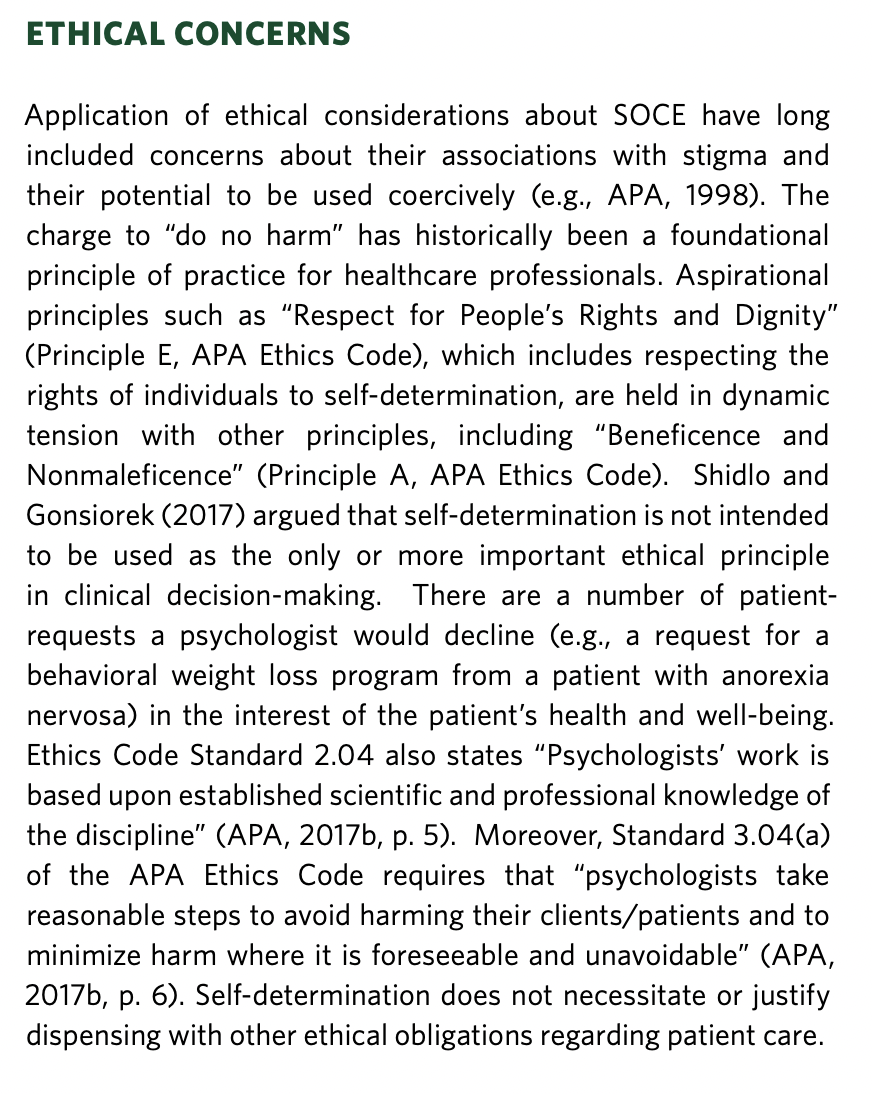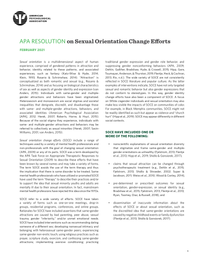American Psychological Association compares the ethics of sexual orientation change efforts to assisting an anorexic with weight loss.
- Type
- Academic / Technical Report
- Source
- American Psychological Association Non-LDS
- Hearsay
- Direct
- Reference
"APA Resolution on Sexual Orientation Change Efforts," American Psychological Association, February 2021
- Scribe/Publisher
- American Psychological Association
- People
- American Psychological Association
- Audience
- American Psychological Association
- Transcription
ETHICAL CONCERNS
Application of ethical considerations about SOCE have long included concerns about their associations with stigma and their potential to be used coercively (e.g., APA, 1998). The charge to “do no harm” has historically been a foundational principle of practice for healthcare professionals. Aspirational principles such as “Respect for People’s Rights and Dignity” (Principle E, APA Ethics Code), which includes respecting the rights of individuals to self-determination, are held in dynamic tension with other principles, including “Beneficence and Nonmaleficence” (Principle A, APA Ethics Code). Shidlo and Gonsiorek (2017) argued that self-determination is not intended to be used as the only or more important ethical principle in clinical decision-making. There are a number of patient requests a psychologist would decline (e.g., a request for a behavioral weight loss program from a patient with anorexia nervosa) in the interest of the patient’s health and well-being. Ethics Code Standard 2.04 also states “Psychologists’ work is based upon established scientific and professional knowledge of the discipline” (APA, 2017b, p. 5). Moreover, Standard 3.04(a) of the APA Ethics Code requires that “psychologists take reasonable steps to avoid harming their clients/patients and to minimize harm where it is foreseeable and unavoidable” (APA, 2017b, p. 6). Self-determination does not necessitate or justify dispensing with other ethical obligations regarding patient care.
- Citations in Mormonr Qnas
The B. H. Roberts Foundation is not owned by, operated by, or affiliated with the Church of Jesus Christ of Latter-day Saints.


